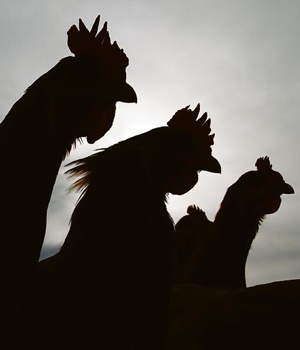
Johannesburg - Ever more US interests are trying to use the new and improved African Growth and Opportunity Act (Agoa) to leverage policy concessions out of South Africa, seemingly undeterred by a “breakthrough” deal on chicken imports in June.
An “out-of-cycle” review of South Africa’s Agoa eligibility kicked off in Washington last week with a public hearing last Friday and a second round of public submissions got published this last week.
The US pharmaceutical, information and communication technology (ICT) and private security industries have joined in the better-known US meat-exporters’ attack on key trade and economic policies.
In the cross hairs are South Africa’s still-incomplete reform of intellectual property rules, planned limits on foreign ownership in the security sector and the regulation of electronic waste disposal, as well as the latest changes to broad-based BEE scorecards.
In their submissions, key US meat exporter groups are dismissive of the chicken quota deal struck in Paris in June, as well as the claimed progress towards reallowing banned US pork and beef products to enter South Africa, which the department of trade and industry had held up as practically ensuring South Africa’s continued inclusion in Agoa.
The department this week replied to its US critics, defending its steps on US meat imports and the importance of South Africa’s transformation policies.
Civil society groups went on a more aggressive offensive against the attempt to make South Africa back down from the more generics-friendly intellectual property policy proposals made in 2013.
The Treatment Action Campaign, Doctors Without Borders, Section 27 and the Stop Stock Outs Project railed against the attempts to leverage Agoa against these intellectual property reforms, which are largely aimed at improving the availability of life-saving medicine to treat HIV, TB and other endemic diseases.
Pharmaceutical companies have anonymously channelled complaints to the Agoa review through submissions by the American Chamber of Commerce and the National Foreign Trade Council. The intellectual property policy will intentionally “weaken current standards that are important to investors and innovators”, they say.
That is certainly the point, but the nongovernmental organisations point out that the proposals fall well within what is allowed under South Africa’s commitments under the international Agreement on Trade-Related Aspects of Intellectual Property Rights. It also echoes previous reforms in other major developing countries.
The American Chamber of Commerce chimed in this week, saying that South Africa’s new broad-based BEE rules are too onerous because of the far higher weight given to local procurement.
“For many manufacturers with complex global supply chains, this is an unrealistic requirement and one that cannot be met without significant additional investments,” said the chamber, apparently speaking mostly on behalf of ICT interests.
The intellectual property policy was also a threat to US ICT imports, it said.
These associations are taking a far softer public approach than the US meat lobbies because their members actually have investments inside South Africa.
Losing Agoa would have a “debilitating impact on South Africa and ... the ability of American companies to do business in South Africa”, said the chamber in its submission.
They don’t want South Africa kicked out of Agoa, but think these qualms can serve as “leverage for action/changes in terms of policy issues that the South African government is pursuing”.
In a submission to the Agoa hearing, the USA Poultry andamp; Egg Export Council and the National Chicken Council treat the chicken deal from June with scepticism, saying that “the ball is in South Africa’s court” and that they will “accept nothing less” than actual US chicken pieces making it into South Africa before lifting the threat of cutting Agoa benefits.
“It is not enough to have reached an agreement in principle in Paris, or to initiate various legal processes in South Africa,” reads its submission.
The chicken deal would allow 65 000 tons of US bone-in chicken pieces to enter South Africa every year – free of the punitive anti-dumping duties that have in effect blocked the product since 2000.
The details for this scheme are still being finalised, but the South African side of the talks claims it is the Americans who are dragging their feet by not timeously responding to the draft agreement that has been drawn up.
The US’s National Pork Producers’ Council is, however, making the most aggressive argument for punitive measures against South Africa. This is in retaliation for the phytosanitary restrictions that have practically banned many US pork imports for more than a decade.
It called for all Agoa benefits to be withdrawn to “draw the attention of high-level officials to the anti-trade policies being enforced by government agencies”.
Despite the department of trade and industry claiming significant progress in hashing out a deal on pork, the National Pork Producers’ Council claims that there has been “no meaningful progress”.
It then proposes that the US could stop short of totally excluding South Africa, but instead revoke market access for specific products, including oranges, wine and nuts – in essence everything South Africa exports under Agoa except for BMWs.




 Publications
Publications
 Partners
Partners








